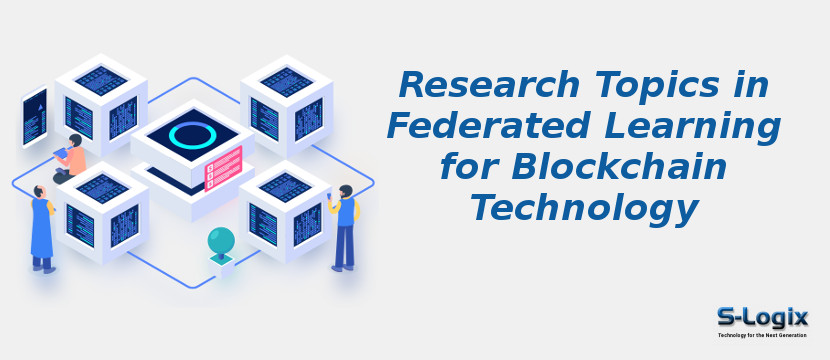In recent times, federated learning has been a fast-growing technique, conjointly enhanced by the impact of machine learning and artificial intelligence with the evolving privacy complications. The main aim of the technology is to prevent privacy leakage by allocating training tasks to a multitude of clients to dividing the central server from the local devices. Still, this technology faces challenges such as single point of failure, malicious clients, and false data. Blockchain technology manifests pre-eminent opportunities with secured, distributed, and auditable data acquiring and splitting techniques in a distrustful environment. Thus the integration of federated learning and blockchain technology has emerged.
The blockchain-based federated learning is applied in various applications by resolving privacy and security, reducing communication and latency difficulties. A few outstanding approaches of blockchain-enabled federated learning are ensuring security and privacy, record and rewards, and verification and accountability approaches. More significant application domains of blockchain-enabled federated learning are the Internet of Vehicles (IoV), Internet of Things (IoT), Healthcare, Edge Computing, Smart Applications, Mobile Devices, Recommendation Systems, Smart Transportation, and Vehicular Networks.
• Internet of Vehicles (IoV) - Blockchain-empowered federated learning schemes are assumed to be applied for several IoV applications and services such as Unmanned Aerial Vehicle (UAV), Traffic Flow Prediction (TFP), Intrusion Detection System (IDS), Passenger Flow Prediction (PFP), Railway Control System (RCS), and Autonomous Driving.
• Internet of Things (IoT) - Construction management, smart public vehicular transportation systems, IoT-based medical delivery drones, edge computing, and smart public transportation are several forms of IoT applicative tasks using blockchain-enabled federated learning.
• Healthcare - In healthcare, blockchain-based federated learning is applied to Internet of Medical Things (IoHT) devices, remote patient monitoring, AI-assisted disease diagnosis, diabetes prediction, recognition of COVID-19, and cloud-based medical records recommendation system.
• Edge Computing – In edge computing, blockchain-enabled federated learning in some popular tasks, including edge data sharing, edge content caching, and edge crowd-sensing.
• Smart Applications – Blockchain-based federated learning are exploited in various smart applications such as smart home systems, smart healthcare system, smart transportation, smart agent system, and smart cities.
• Recommendation System – Cloud-based medical records and news recommendation systems are also developed using Blockchain-based federated learning.
• Smart Transportation - Blockchain-enabled federated learning concept utilized for smart transportation infrastructure through the Vehicular ad hoc network (VANET) in various applicative tasks such as vehicular networks, roadside infrastructure, smart automobiles, and decision support systems in smart transportation infrastructure.
